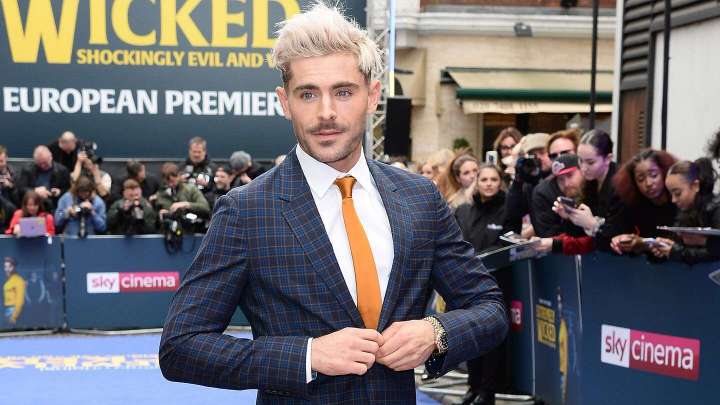“Former teen star talks body image” wouldn’t be a surprising headline in and of itself. But it’s definitely different when that grown-up actor looking back is a man — as Zac Efron, he of “Baywatch”-reboot fame, did in a recent Men’s Health profile.
You can’t get Zac Efron’s body. And you shouldn’t try.

That frankness feels like a bit of a watershed in an era in which actors have been strenuously honing themselves to meet the sort of narrow beauty expectations normally reserved for women. When Hollywood and social media have created a newly unobtainable standard for a rising generation of boys, it’s about time men and boys heard what feminists have long argued: Not everyone can contort themselves to achieve some bizarre ideal, and there are real dangers to trying.
Physical metamorphoses, of course, have long been part of the actor’s life and feature heavily in award-season narratives — though they’re often hailed as a form of art, not as a how-to manual.
When Christian Bale lived on about 200 calories a day to achieve a skeletal physique for “The Machinist,” the public admired his dedication but didn’t emulate it. Robert De Niro gained nearly 60 pounds in four months and walked away with an Oscar for “Raging Bull.” This year, Brendan Fraser is getting accolades for his performance in “The Whale” — in which he plays an isolated, grieving man who is eating himself to death — partly because the stigma against overweight people is still so intense that it’s considered brave for an actor to beef up.
But that’s all separate from body-as-ideal — the kind that has supposedly been “perfected” through dedication and discipline, and becomes an aspiration for others.
Back in 2011, Chris Evans acknowledged that training to play Captain America in Marvel’s superhero franchise meant living with persistent discomfort. “Every guy I know” who tries to get superhero-big “has some sort of freak injury in their body,” Evans told Men’s Health. A decade later, that candor didn’t prevent the magazine from offering readers insights into how they could replicate Evans’s regimen.
Even as they’re packaged as self-improvement content, these stories of transformation often leave something out. Chris Pratt began his career as a lovable, soft-bodied comedic actor before losing 60 pounds in six months to transition to action roles. On Instagram and in character on “Parks and Recreation,” he joked that the change was the result of giving up beer. But there was more to the story, involving a strictly monitored diet and intensive workouts with trainers, all neatly replicated in a guide for readers of Muscle & Fitness.
Chris Hemsworth, who got huge to play the Norse god Thor in the Marvel Cinematic Universe, has a sideline as a fitness entrepreneur. He posts workout videos to Instagram and runs Centr, a subscription service that promises users they can “transform your health, fitness and mindset with Chris Hemsworth’s team of world-class experts” — starting at “just $10” a month.
Although this trend has escalated in recent years, it has been building for some time. The standard for on-screen male shirtlessness rose in tandem with superhero movies after the turn of the century. A decade ago, the journal Pediatrics found that nearly 6 percent of middle and high school boys had experimented with steroids. Today, social media provides a feedback loop, letting ordinary teenagers turn themselves into fitness influencers.
Then there’s the potential role of steroids and human growth hormone in all this bulking up, a subject that is much discussed in Hollywood, but rarely above a whisper, and only then to suggest that someone else is sampling the forbidden fruit.
This is why it’s refreshing to hear blunt talk from high-profile stars about what it actually takes to achieve physiques that are themselves special effects.
“I wouldn’t recommend anyone do what I did,” Will Poulter said about training for his role as the genetically altered superhuman Adam Warlock in the forthcoming “Guardians of the Galaxy Vol. 3.” His regimen, he added, which involved gorging and fasting to build mass and drop water weight, is “unhealthy and unrealistic if you don’t have the financial backing of a studio paying for your meals and training.”
Efron goes further, suggesting it’s not just the process that is undesirable, but the results, too.
“That ‘Baywatch’ look, I don’t know if that’s really attainable,” he told Men’s Health. “There’s just too little water in the skin. Like, it’s fake; it looks CGI’d.”
One interview can’t overpower the superhero movies dominating global pop culture. But Efron’s honesty is a welcome starting point for a conversation about male body ideals — what so-called perfection is worth, and what cost is too high to pay for it.






